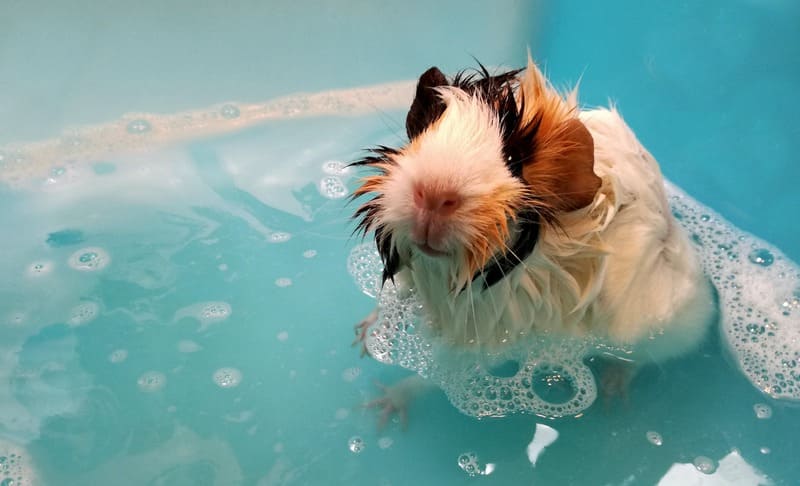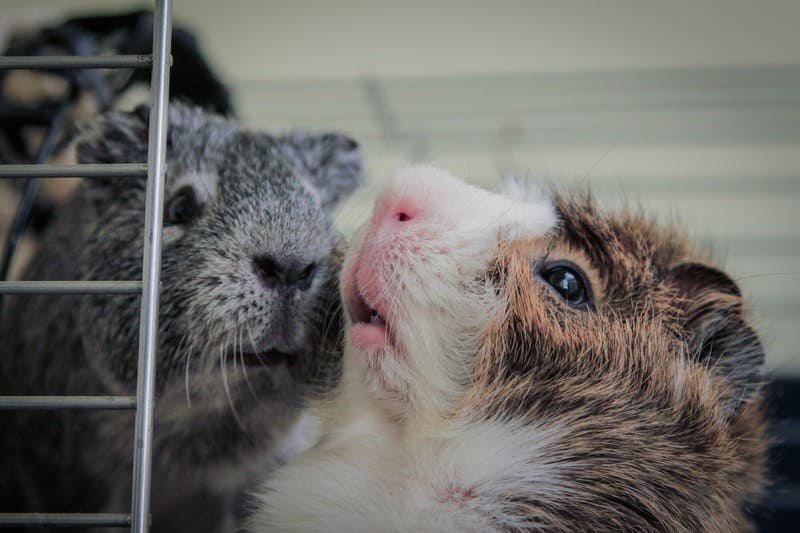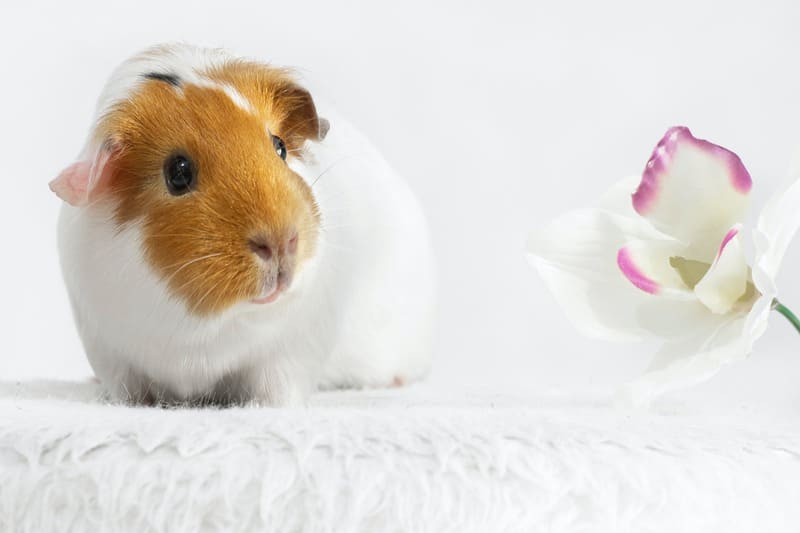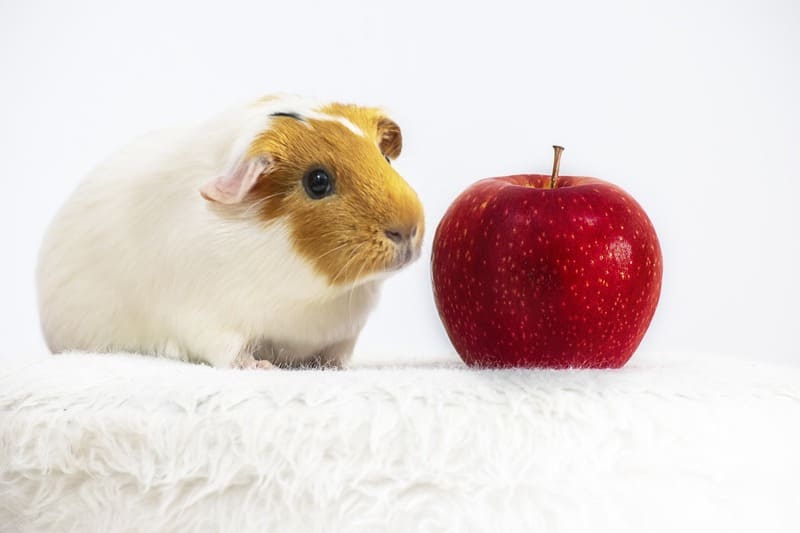Guinea pigs are delightful, low-maintenance pets that are known for their adorable appearance and gentle temperament. While they are relatively easy to care for, one common question that guinea pig owners often ask is whether or not they need to bathe their furry companions. In this comprehensive guide, we’ll explore the topic of bathing guinea pigs, including when, why, and how to do it, as well as essential considerations for their overall well-being.

The Natural Cleaning Habits of Guinea Pigs
Before diving into the specifics of bathing guinea pigs, it’s essential to understand their natural cleaning habits. Guinea pigs are generally quite diligent when it comes to grooming themselves. They use their teeth and tongues to clean their fur and maintain a good level of hygiene. In most cases, guinea pigs are capable of keeping themselves clean without the need for frequent baths.
However, there are situations where you might need to step in and assist with their grooming, or you may wish to bathe your guinea pig for other reasons. Let’s explore these scenarios in detail.
When to Bathe Your Guinea Pig
1. Medical Necessity
In some cases, bathing a guinea pig becomes a medical necessity. For example, if your guinea pig has a skin condition, such as fungal or bacterial infections, your veterinarian might recommend regular medicated baths to treat the problem. These baths often involve specific instructions from the vet regarding the frequency and products to use.
2. Extreme Soiling
Guinea pigs typically keep themselves clean, but sometimes, they can get themselves into messy situations. If your guinea pig becomes excessively soiled with substances like urine or feces, you might need to give them a bath. Extreme soiling can occur due to various reasons, such as obesity, mobility issues, or accidents.
3. Long-Haired Guinea Pigs
Long-haired guinea pig breeds, like the Peruvian or Silkie, are more susceptible to matting and dirt accumulation in their fur. Owners of long-haired guinea pigs might need to bathe them occasionally to prevent matting and maintain their fur in a healthy condition.
4. Sows (Female Guinea Pigs)
Sows, or female guinea pigs, may sometimes require special attention. Pregnant sows, for instance, might need help with their hygiene if they cannot reach certain areas due to their expanding bellies. Additionally, postpartum sows may require assistance in cleaning themselves and their newborns.
5. Smelly Odors
If your guinea pig develops a persistent, foul odor that is not related to an illness, it might be time for a bath. However, it’s essential to rule out any underlying health issues with the help of a veterinarian before attributing the odor to poor hygiene alone.
6. Routine Maintenance
While most guinea pigs can maintain their cleanliness without frequent baths, some owners choose to give their pets occasional baths as part of their routine maintenance. This is typically done to keep their fur soft and clean, but it’s important to exercise caution and not overdo it, as excessive bathing can lead to skin problems.

Why You Should Be Cautious About Bathing Guinea Pigs
Bathing guinea pigs can be a delicate process, and there are several reasons why you should exercise caution:
1. Stress
Guinea pigs are naturally skittish animals, and being placed in water can be a stressful experience for them. The stress of bathing can be detrimental to their health and well-being.
2. Risk of Injury
Guinea pigs are small and delicate, and they can easily become injured during the bathing process. Sharp objects, such as clippers or scissors, can harm them, and even a minor injury can lead to complications.
3. Skin Sensitivity
Guinea pigs have sensitive skin, and harsh shampoos or excessive scrubbing can irritate their skin. Skin irritation can lead to itching, scratching, and skin problems if not managed properly.
4. Overgrowth of Oil Glands
Excessive bathing can disrupt the balance of oil glands in the guinea pig’s skin. The body may respond by producing even more oil, which can exacerbate skin issues and odors.
5. Loss of Essential Oils
Bathing can strip away the essential oils in a guinea pig’s coat, which help maintain its overall health and luster.
Given these considerations, it’s crucial to take a cautious approach to bathing your guinea pig and consider alternative methods to address any hygiene or health concerns.

How to Safely Bathe Your Guinea Pig
If you determine that a bath is necessary for your guinea pig, it’s important to follow specific guidelines to ensure their safety and well-being. Here’s a step-by-step guide to safely bathe your guinea pig:
1. Prepare the Bathing Area
Choose a warm, quiet, and well-lit space for the bath. You can use a clean sink, a shallow basin, or a small plastic tub for this purpose. Ensure that the water temperature is comfortably warm, similar to what you would use for a baby. Fill the bathing area with about one inch of water.
2. Gather Supplies
Before you begin, gather all the necessary supplies. You will need a mild, guinea pig-safe shampoo (avoid using shampoos designed for dogs or cats), clean towels, a gentle spray nozzle or a cup for rinsing, and a soft toothbrush or grooming brush for long-haired guinea pigs.
3. Trim Nails (Optional)
If your guinea pig has long nails, you may want to trim them before the bath to reduce the risk of injury. Use small, guinea pig-specific nail clippers, and be extremely careful not to cut too close to the quick.
4. Calm Your Guinea Pig
Guinea pigs can be nervous during bath time, so it’s essential to keep them as calm as possible. Speak to them gently, offer a few treats, and let them get accustomed to the bathing area before you start the bath.
5. Wet Your Guinea Pig
Using a gentle spray nozzle or a cup, wet your guinea pig’s fur thoroughly. Avoid getting water in their ears and eyes, as this can cause discomfort and distress.
6. Apply Shampoo
Apply a small amount of guinea pig-safe shampoo to your hands and work up a lather. Gently massage the shampoo into your guinea pig’s fur, focusing on areas that need extra attention, such as soiled or matted areas. Be extremely gentle to avoid irritating their skin.
7. Rinse Thoroughly
Rinse your guinea pig’s fur with lukewarm water until all the shampoo is completely removed. Ensure that you rinse the belly, legs, and other hard-to-reach areas thoroughly.
8. Dry Gently
Use a clean, dry towel to pat your guinea pig dry. Be sure to remove excess moisture, especially from long-haired breeds. Avoid vigorous rubbing, as it can cause skin irritation.
9. Post-Bath Care
After the bath, it’s crucial to keep your guinea pig warm and comfortable until they are completely dry. Place them in a dry, draft-free environment and monitor them to ensure they are not chilled.
10. Monitor for Stress
Watch for signs of stress, such as shivering, excessive panting, or a rapid heart rate, and consult your veterinarian if you notice any concerning behavior.

Alternatives to Bathing
While bathing is sometimes necessary, there are alternative methods to help your guinea pig maintain their hygiene and health without the stress of a full bath:
1. Spot Cleaning
Instead of a full bath, you can spot clean soiled areas by using a damp cloth or paper towel. This approach can effectively remove dirt and feces without subjecting your guinea pig to the stress of a complete bath.
2. Brushing
Regular brushing is essential, especially for long-haired guinea pigs. Brushing can help prevent matting, reduce shedding, and maintain the cleanliness of their fur.
3. Provide a Dust Bath
A dust bath, often used for chinchillas, is an alternative method for keeping guinea pigs clean. You can use a specialized dust bath product designed for small rodents and allow your guinea pig to roll in it, helping to remove excess oils and dirt from their fur.
4. Maintain a Clean Living Environment
Keeping the cage clean is one of the most effective ways to ensure your guinea pig’s overall hygiene. Regularly change their bedding, clean the cage, and provide fresh hay and water to help them stay clean and healthy.
Conclusion
In summary, bathing your guinea pig should be approached with caution and reserved for specific situations, such as medical necessity, extreme soiling, or the care of long-haired guinea pigs. Guinea pigs are generally capable of maintaining their own hygiene, and excessive bathing can lead to stress, skin issues, and other complications. By following the guidelines for safe bathing or considering alternative methods for maintaining their cleanliness, you can ensure that your guinea pig remains happy and healthy without unnecessary stress or risk. Always consult with your veterinarian for guidance if you have concerns about your guinea pig’s hygiene or health.
